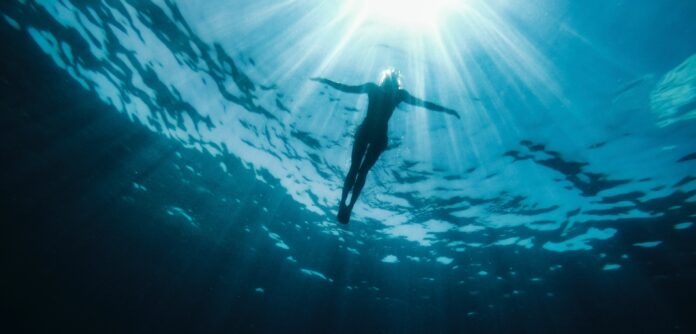Immersing yourself in cold water has many health benefits, as Anne Gastinger discovers.
Migraines have plagued me since adulthood. A cold flannel, or taking a soothing shower, brought momentary relief. And when I was caught out with a migraine during a long car trip my brother suggested I rest in the river shallows. The cool water flowing over me did help. The pain eased and we were able to travel on.
I now swim regularly through the spring, summer and autumn months at my local beach. During winter my attendance rate is poor but I’m working on that, because bathing in nature’s cold waters alleviates the frequency and intensity of my migraines.
When stress can strengthen
The health claims of cold-water dipping have garnered attention in the scientific community. While there are serious risks if one does not adhere to safety guidelines, the evidence emerging about the adaptions our body undergoes when stressed by cold water is compelling. So much so that Grant Schofield, a professor of public health at Auckland University of Technology and himself a daily cold-water dipper, describes the practice as “effectively upgrading your brain”.
“Cold water is stressful on the body. Under stress we build back even better than we started,” Professor Schofield said on Radio NZ in August 2021, and confirmed his comments when contacted by Organic NZ.
“Some of these beneficial adaptions include the conversion of white fat to beneficial more metabolically active brown fat, and increased secretion of the hormone irisine from the muscles which aids glucose and fat metabolism. These changes are adaptations to the stress of the cold and they help the mind and body be a more efficient version of itself.”
Not only can cold-water exposure combat depression, it has also been shown to boost energy, aid cognition and relieve arthritis. One study found that regular winter dippers in Finland reported experiencing less tension and fatigue, improved mood and memory, and less arthritic pain. Another study of cold-water swimmers in Germany found they contracted significantly fewer respiratory infections than the general population.
At a time when dementia in Western societies is on the increase, cold-water bathing may yet prove a means of delaying or even preventing its onset. In 2018 researchers in the UK found cold-water swimmers who regularly lower their body temperatures to 35ºC produce a ‘cold-shock’ protein, known as RNA-binding protein 3 (RBM3). This protein has been shown not only to slow the onset of dementia in mice, but even repair some of the damage caused by the disease.
Acclimatise and stay safe
For those new to cold-water dipping, summertime when marine, river and lake temperatures are warmer is an ideal time to begin acclimatising your body to cold-water shock. This is our initial breath-gasping stress response to the sudden drop in skin temperature caused by the cold water.
The quickened breathing rate, along with an increase in blood pressure, lasts some minutes. As we acclimatise – which can occur after as few as six cold-water swims – our bodies adapt to better withstand cold temperatures.
After leaving the water, dry and dress yourself quickly in warm garments that are easy to slip on. It’s not uncommon ten or so minutes afterwards to get the shivers as ‘after drop’ kicks in. When cold, the body cleverly protects its vital core organs by reducing blood flow to the skin and limbs. Our core stays warm while our extremities cool. Back on land when peripheral vasoconstriction ends, the cooler blood mixes with the warmer blood, causing a drop in deep body temperature. Be prepared with a hot drink in a thermos for afterwards.
Healthy habits
Cold-water swimming, when practised according to safety guidelines, is an effective means of aiding and maintaining health. As Professor Schofield says: “We’re such great adapters, we un-adapt at the same rate if we’re sedentary.”
Like all good health practices it works best if undertaken regularly.
– This article was first published in Organic NZ magazine.
Anne Gastinger lives, gardens and writes in Ōtautahi Christchurch, and enjoys swimming at Waimairi Beach.
Tips for cold dips
When swimming in water 16ºC or colder, take note of the following. If you have an underlying health condition, first seek medical advice.
- Check weather conditions and ensure the location and water quality are suitable for swimming.
- Start with short dips and wade in slowly. It feels painful, but the body adjusts. Learn your limits, and swim with others.
- Head under or not? Keep your face above water until breathing is under control. Cold water frequently entering the ear canal can cause an abnormal bone growth commonly known as surfer’s ear. Protect your ears by wearing a silicone swimming hat and/or ear plugs.
- Beware of hypothermia, which occurs when body temperature falls below 35ºC. If you slow down or shiver, get out and warm up. The length of time you can swim in cold water without hypothermia depends on body size and shape, experience and training.
- When to get out? Practice caution. Experienced swimmers: 10 minutes for health benefits.




